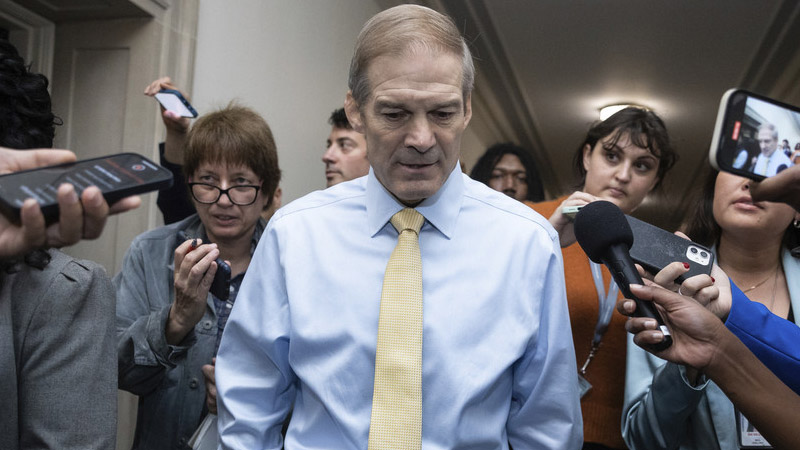The bid by Rep. Jim Jordan to secure the position of House Speaker has triggered discussions about expanding the role of Patrick McHenry, the current Speaker pro tempore.
Jordan’s recent inability to garner sufficient support in the House vote has drawn attention to McHenry as a potential influential figure in navigating the challenges facing the lower chamber.
As reported by Yahoo on Wednesday, October 17, 2023, Rep. Jim Jordan’s aspirations to become the House Speaker faced a significant setback when he fell short of securing the required support in Tuesday’s vote. Losing the backing of 20 Republicans, Jordan was unable to reach the 217-majority threshold needed for election.
This unexpected turn of events has raised uncertainty regarding the resolution of the House leadership question. With another ballot scheduled for Wednesday, the prospects for Jim Jordan’s success remain uncertain, and persuading GOP defectors to rally behind him has proven to be a formidable challenge.
The looming possibility of an extended deadlock harks back to historical instances, such as when Kevin McCarthy needed 15 ballots to secure the Speaker position in January.
As the political landscape within the Republican Party undergoes shifts and uncertainties, attention has increasingly turned to Patrick McHenry, the Speaker pro tempore.
Traditionally, the role of speaker pro tempore primarily involves presiding over the House in the Speaker’s absence. However, in times of leadership crises, the question of expanding McHenry’s powers becomes pertinent.
The current circumstances prompt a reconsideration of the responsibilities and authorities delegated to Patrick McHenry. Discussions about potentially enhancing his role to include more active involvement in legislative coordination and decision-making have gained traction.
Such a shift could position McHenry as a stabilizing force and a crucial figure in navigating the House through the current impasse.
The potential for a prolonged deadlock in the House raises concerns about the chamber’s ability to effectively address pressing issues. This leadership paralysis could hinder legislative progress and impact the House’s capacity to respond to critical matters on the national agenda.
While the need for multiple ballots to elect a Speaker is not unprecedented, as demonstrated by Kevin McCarthy’s experience in January, these situations underscore the complexities of internal party dynamics and the challenges of securing consensus within a diverse caucus.


